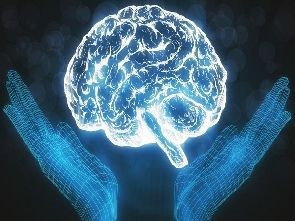Apple and Google unveiled a rare partnership to add technology to their smartphone platforms that will alert users if they have come into contact with a person with Covid-19.
People must opt into the system, but it has the potential to monitor about a third of the world’s population.
The technology, known as contact-tracing, is designed to curb the spread of the novel coronavirus by telling users they should quarantine or isolate themselves after contact with an infected individual.
The Silicon Valley rivals said on Friday that they are building the technology into their iOS and Android operating systems in two steps. In mid-May, the companies will add the ability for iPhones and Android phones to wirelessly exchange anonymous information via apps run by public health authorities. The companies will also release frameworks for public health apps to manage the functionality.
This means that if a user tests positive for Covid-19, and adds that data to their public health app, users who they came into close proximity with over the previous several days will be notified of their contact. This period could be 14 days, but health agencies can set the time range.
The second step takes longer. In the coming months, both companies will add the technology directly into their operating systems so this contact-tracing software works without having to download an app. Users must opt in, but this approach means many more people can be included. Apple’s iOS and Google’s Android have about 3 billion users between them, over a third of the world’s population.
The pandemic has killed more than 100 000 and infected 1.63 million people. Governments have ordered millions to stay home, sending the global economy into a vicious tailspin. Pressure is building to relax these measures and get the world back to work. Contact-tracing is a key part of this because it can help authorities contain a potential resurgence of the virus as people resume regular activities.
Still, this technology is controversial because it involves sharing sensitive health information from billions of people via mobile devices that are constantly broadcasting their location. Some politicians and regulators have been warning that citizens’ privacy should be protected.
Privacy
Apple and Google stressed on Friday that their system preserves users’ privacy.
Consent is required and location data is not collected. The technology also won’t notify users who they came into contact with, or where that happened.
The companies said they can’t see this data either, and noted that the whole system can be shut down when needed.
Aside from privacy and trust concerns, challenges include the availability of widespread and free testing to complement the app, as well as access to mobile phones and other wireless devices, according to the American Civil Liberties Union.
Click to view details



Business News of Sunday, 12 April 2020
Source: Bloomberg







![Deputy Minority Leader, Emmanuel Armah-Kofi Buah [L] and First Lady Rebecca Akufo-Addo Deputy Minority Leader, Emmanuel Armah-Kofi Buah [L] and First Lady Rebecca Akufo-Addo](https://cdn.ghanaweb.com/imagelib/pics/114/11465182.295.jpg)









